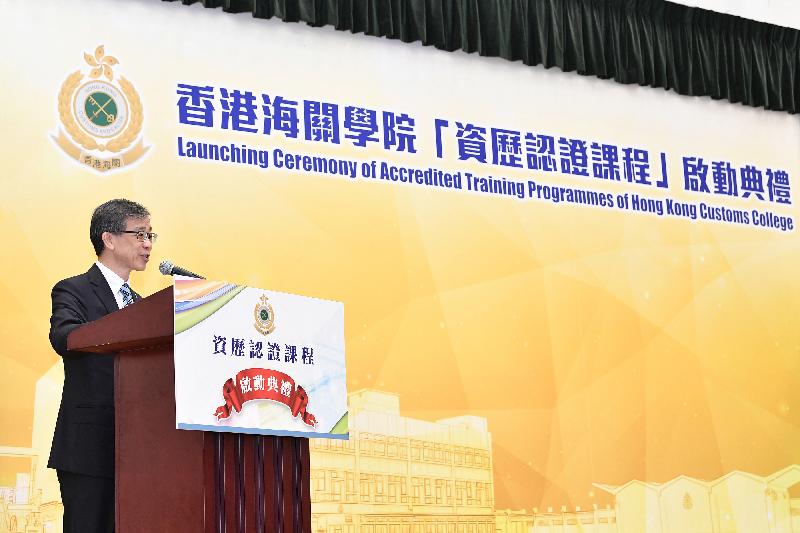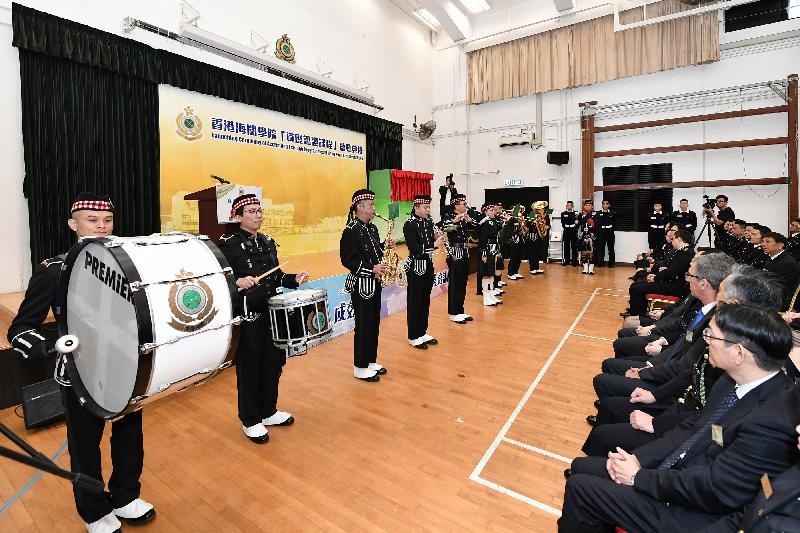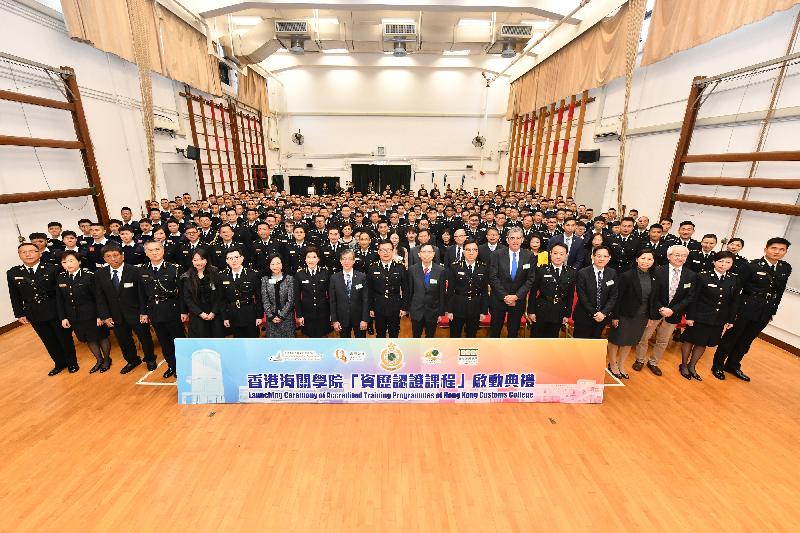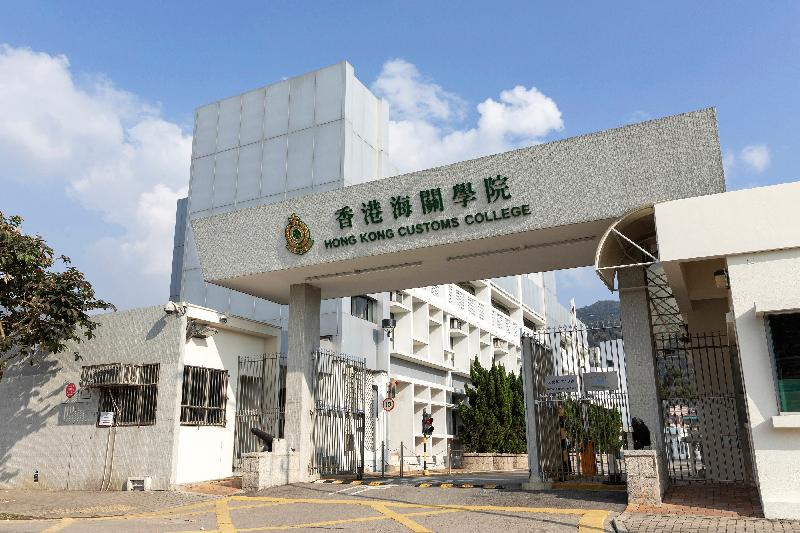Hong Kong Customs’ induction programmes accredited under Hong Kong Qualifications Framework (with photos)
The Customs and Excise Department (Hong Kong Customs) obtained an accreditation approval from the Hong Kong Council for Accreditation of Academic and Vocational Qualifications (HKCAAVQ) in December 2018 to include its induction programmes for Inspectors and Customs Officers in the Qualifications Register. With the approval, Hong Kong Customs has become the second disciplinary force in Hong Kong after the Hong Kong Police Force to offer Qualifications Framework-recognised induction programmes to staff of both the rank-and-file and officer grades. The Customs and Excise Training School (CETS) has also been renamed as Hong Kong Customs College since January 1 this year, marking a new era for the department's manpower training.
The Commissioner of Customs and Excise, Mr Hermes Tang, officiated at a ceremony today (February 25) at Hong Kong Customs College to mark the launch of the department's recognised training programmes. The HKCAAVQ's Chairman, Dr Alex Chan, and its Executive Director, Mr Albert Chow, also joined the ceremony.
Speaking at the ceremony, Mr Tang said that Hong Kong Customs has all along valued high talent training. In the past 44 years, Hong Kong Customs College has kept up refining and reinforcing its teaching and training facilities so that trainees can acquire promptly the operational skills under the rapid development of society and the fast-changing front-line environment.
Mr Tang said that apart from stepping up the current duties, Hong Kong Customs also needs to develop along the smart customs blueprint to meet the ever-changing challenges in trade facilitation and law enforcement under the context of the Belt and Road Initiative and the Guangdong-Hong Kong-Macao Greater Bay Area development.
"There is a need for the department to boost the talent pool. Through its own quality assurance mechanism, Hong Kong Customs College will continue to design and refine its induction and in-service training programmes to ensure the officers' professionalism in taking up all sorts of challenges ahead," Mr Tang said.
He also said that the accreditation presents an extraordinary gift to the department, as this year marks the 70th anniversary of the establishment of the People's Republic of China and the 110th anniversary of the department's establishment.
The two programmes accredited are "Professional Diploma in Customs Management for Inspectors" at QF Level 5 (pitched at the same QF level as a local Bachelor's Degree) and "Professional Diploma in Customs Operations for Customs Officers" at QF Level 4 (pitched at the same QF level as a local Associate Degree or a Higher Diploma).
All Probationary Inspectors and Probationary Customs Officers admitted after the accreditation approval will be awarded the relevant diplomas upon their completion of the induction programmes.
The first batch of new recruits enrolled in the accredited programmes also joined today's launching ceremony. Comprising 64 Probationary Inspectors and 124 Probationary Customs Officers, the classes started last month. The Probationary Inspectors will graduate in August while the Probationary Customs Officers will finish the programme in May.
The professional training of Hong Kong Customs has long been recognised by the World Customs Organization (WCO). As early as March 2004, the then CETS had been designated as the WCO's regional training centre to offer professional customs training to the WCO's members in the Asia-Pacific region in a step to reinforce the department's global partnership.
Established in 1974, the CETS provided professional training for the department's new recruits and in-service officers as well as officers from the customs administrations in the Asia-Pacific region.
In order to encourage the department's officers to pursue continuous and lifelong learning, Hong Kong Customs College will explore course-exemption arrangements with tertiary institutions to facilitate the further studies of accredited programmes' graduates.
Leaflets have been produced to introduce details of the accredited induction programmes (see annex).






